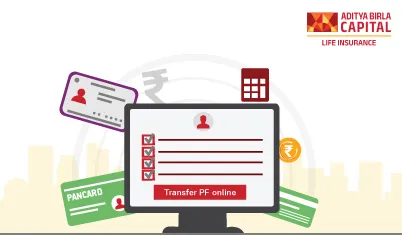Aditya Birla Sun Life Insurance Company Limited
Do Beneficiaries Have to Pay Taxes on Life Insurance?

Plan Smarter, Live Better!

Thank you for your details. We will reach out to you shortly.

Currently we are facing some issue. Please try after sometime.


- Table of Contents
Have you ever wondered if there's a tax bill waiting for you after receiving a life insurance payout? It's a common question among beneficiaries. Let's dive into the world of life insurance and explore whether or not beneficiaries have to pay taxes on their received benefits.
Do Life Insurance Beneficiaries Have To Pay Taxes?
In most cases, life insurance beneficiaries do not have to pay income taxes on the death benefit they receive. Life insurance payouts are generally considered tax-free income. However, there are a few scenarios where taxes might come into play:
- Estate Taxes:
If the life insurance policy is owned by the deceased and the total estate value exceeds the federal estate tax exemption limit, the death benefit may be subject to estate taxes. This is more common in larger estates.
- Interest Income:
If the death benefit is paid over time with interest, the interest portion of the payments is taxable as income.
- Policy Loans:
If the policyholder took out a loan against the policy's cash value and did not repay it before their death, the loan amount can be deducted from the death benefit, and the beneficiaries may have to pay taxes on that portion.
- Corporate-Owned Policies:
If a life insurance policy is owned by a company and paid to an individual beneficiary, the death benefit may be considered taxable income to the beneficiary.
It's necessary to consult with a tax advisor or financial planner to understand the specific tax implications for your situation and ensure compliance with tax laws.
When Is a Life Insurance Benefit Taxable?
While life insurance benefits are generally tax-free, there are certain circumstances under which they may become taxable:
- Interest Earnings:
If the death benefit is not paid out immediately as a lump sum and accrues interest, the interest portion is taxable as income.
- Estate Inclusion:
Suppose the life insurance policy is part of the deceased's estate and the total estate value exceeds the federal estate tax exemption limit. In that case, the death benefit may be subject to estate taxes.
- Ownership Transfer:
If the policyholder transfers ownership of the policy within three years of their death, the death benefit is usually included in their estate and could be subject to estate taxes.
- Policy Loans
If the policyholder had an outstanding loan against the policy's cash value at the time of death, the death benefit used to pay off the loan may be taxable.
- Business-Owned Policies:
If a business is the beneficiary of a life insurance policy, the death benefit may be taxable as income to the business.
It's essential to consult with a tax professional to understand the tax implications of a life insurance benefit in your specific situation and take appropriate steps to minimise any potential tax liability.
Tips to Avoid a Life Insurance Benefit Tax
Here are some strategies to minimise or avoid taxes on life insurance benefits:
-
Ownership Structure: Ensure that the life insurance policy is not owned by the insured. If the insured owns the policy, the death benefit is usually included in the estate and could be subject to estate taxes. Consider having a trust or another individual own the policy.
-
Use a Trust: Setting up an irrevocable life insurance trust (ILIT) can help keep the policy out of the insured's estate, thus avoiding estate taxes on the death benefit.
-
Gift Policy: If you're transferring ownership of the policy, do it more than three years before the insured's death to avoid inclusion in the estate for tax purposes.
-
Annual Gift Tax Exclusion: Use the annual gift tax exclusion to pay premiums on a policy owned by someone else or a trust, reducing the taxable estate.
-
Monitor Group Life Insurance: For employer-provided group life insurance, keep the coverage amount under the limit specified by the Income Tax Act to avoid taxable income for the beneficiary.
-
Repay Policy Loans: Ensure that any loans against the policy's cash value are repaid before the insured's death to prevent the death benefit from being reduced and potentially taxed.
-
Consult a Tax Professional: Tax laws can be complex, and it's essential to consult with a tax advisor or estate planning attorney to develop a strategy that aligns with your specific circumstances and goals.
By carefully planning the ownership and structure of your life insurance policy, you can ensure that your beneficiaries receive the maximum benefit with minimal tax implications in India.
What Happens if You Do Not Name a Beneficiary?
If a life insurance policyholder does not name a beneficiary, or if all named beneficiaries predecease the policyholder, the death benefit typically becomes part of the policyholder's estate. Here's what generally happens in such cases:
- Estate as Beneficiary:
The death benefit is paid to the estate of the deceased policyholder. It is then subject to the probate process, where the court supervises the distribution of the estate, including the life insurance proceeds.
- Distribution According to Will:
If the policyholder has a will, the death benefit will be distributed according to the terms of the will, along with other assets in the estate.
- Intestate Succession;
If there is no will, the death benefit is distributed according to the laws of intestate succession in the policyholder's jurisdiction. This usually means that the proceeds are divided among the legal heirs, such as the spouse, children, or parents, in proportions specified by law.
- Potential Delays:
Since the death benefit becomes part of the estate, it may be subject to delays in the probate process, which can take several months or even years.
- Estate Taxes and Creditors:
The death benefit may be subject to estate taxes if the total estate value exceeds the exemption limit. Additionally, the proceeds may be used to pay off the policyholder's outstanding debts and creditors before distribution to heirs.
To avoid these complications, it's advisable to name one or more beneficiaries when purchasing a life insurance policy and keep the beneficiary designations updated to reflect any changes in your wishes or circumstances.
How Does a Life Insurance Beneficiary File a Claim?
Filing a claim for a life insurance benefit involves several steps. Here's a general guide for beneficiaries to follow:
- Obtain the Death Certificate:
The beneficiary should obtain a certified copy of the policyholder's death certificate, which is required by the insurance company to process the claim.
- Locate the Policy Document:
If possible, locate the original life insurance policy document or at least have the policy number and details ready.
- Contact the Insurance Company:
Reach out to the insurance company or the agent who sold the policy to inform them of the policyholder's death and to initiate the claim process.
- Complete the Claim Form:
The insurance company will provide a claim form, which needs to be filled out by the beneficiary. This form typically requires details about the policyholder, the beneficiary, and the circumstances of the death.
- Submit Required Documents:
Along with the claim form, submit the required documents, which usually include the death certificate, policy document, ID proof of the beneficiary, and any other documents requested by the insurer.
- Review by the Insurance Company:
The insurance company will review the claim and may ask for additional information or documents if needed.
- Payment of the Claim:
Once the claim is approved, the insurance company will process the payment. The death benefit can be paid out as a lump sum, in instalments, or as an annuity, depending on the policy terms and the beneficiary's choice.
- Tax Forms:
If applicable, the insurance company may provide tax forms related to the death benefit payout.
Beneficiaries need to follow up with the insurance company if there are any delays or issues in processing the claim. Keeping copies of all submitted documents and correspondence can help track the progress of the claim.
Why Life Insurance Is More Tax Efficient Than Other Investment Options?
Life insurance is considered more tax-efficient than many other investment options due to the following reasons:
- Tax-Free Death Benefit:
The death benefit received by the beneficiaries is generally tax-free, providing them with the full amount without any tax deductions.
- Tax Exemptions on Premiums:
Premiums paid for life insurance policies are eligible for tax deductions under Section 80C of the Income Tax Act, up to a specified limit.
- Tax-Free Maturity Benefits:
The maturity benefits, including bonuses, received from certain life insurance policies are tax-free under Section 10(10D)1 of the Income Tax Act, subject to certain conditions.
- Loan against Policy:
Policyholders can take loans against the cash value of their life insurance policies without incurring any tax liabilities.
- Wealth Transfer:
Life insurance is used as an estate planning tool to transfer wealth to the next generation in a tax-efficient manner.
Get The Best of Both Worlds With Guaranteed Financial Benefits and Tax Benefits
Life insurance offers a unique combination of guaranteed# financial benefits and tax advantages, making it an attractive option for investors seeking both security and tax efficiency:
- Financial Security:
Life insurance provides financial security to the policyholder's family in the event of their untimely demise, ensuring that their loved ones are taken care of.
- Wealth Accumulation:
Certain life insurance policies offer the opportunity to accumulate wealth over time, with the added advantage of tax-free growth.
- Tax Savings:
The tax benefits* associated with life insurance premiums and payouts make it an effective tool for reducing tax liabilities and maximising after-tax returns.
- Flexibility:
Life insurance policies offer various options, such as riders2 and different payout structures, to cater to the diverse needs of investors.
- Peace of Mind:
Beyond the financial and tax benefits*, life insurance provides peace of mind, knowing you have a safety net for your family's future.
Conclusion
Life insurance stands out as a tax-efficient investment option, offering financial protection for your loved ones together with significant tax benefits*. By combining guaranteed# financial benefits with tax advantages, life insurance provides a comprehensive solution for wealth protection and tax planning. It's a powerful tool for achieving financial security while optimising your tax savings, making it a valuable addition to any investment portfolio.
Thank you for your details. We will reach out to you shortly.
Thanks for reaching out. Currently we are facing some issue.
Buy ₹1 Crore Term Insurance at Just ₹575/month1
ABSLI DigiShield Plan
Life cover up to 100 years of age.
Joint Cover Option
Inbuilt Terminal Illness Benefit
Tax Benefit^
Return of Premium Option~
Life Cover
₹1 crore
Premium:
₹575/month1
Most Popular Calculator
Guaranteed returns after a month¹
1Sec 10(10D) benefit is available subject to fulfilment of conditions specified therein.
2For further details regarding the above-mentioned rider, please refer to the respective rider brochure(s) available on our website.
#Provided all due premiums are paid.
ADV/2/24-25/2894







